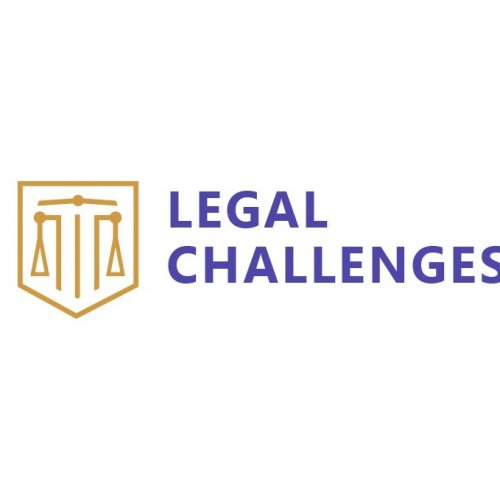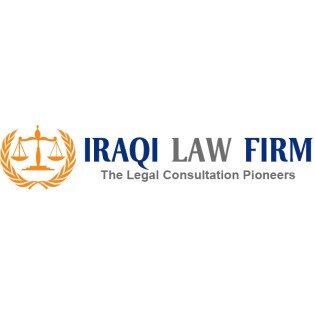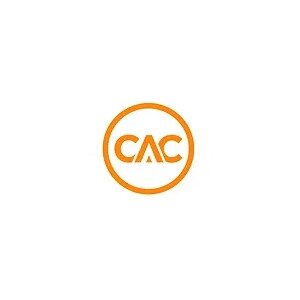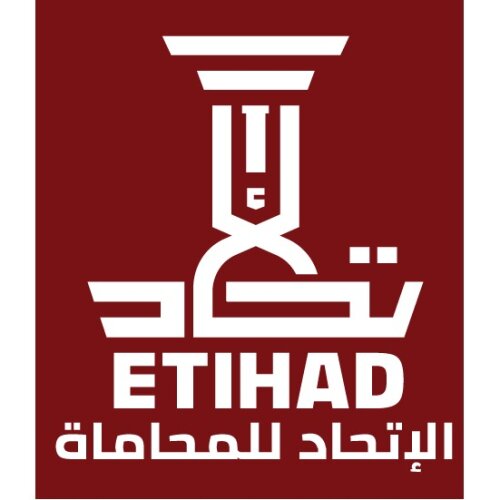Best Project Finance Lawyers in Iraq
Share your needs with us, get contacted by law firms.
Free. Takes 2 min.
Or refine your search by selecting a city:
List of the best lawyers in Iraq
About Project Finance Law in Iraq
Project finance refers to a method of funding large-scale infrastructure or industrial projects, where the repayment of the financing is primarily from the cash flow generated by the project itself. In Iraq, project finance is an essential mechanism to fund developments in sectors such as energy, telecommunications, transport, water, and waste management. As the country rebuilds and expands its infrastructure, both local and international investors are increasingly interested in project finance structures to manage risk and maximize returns. Project finance in Iraq is characterized by complex legal frameworks, multiple stakeholders, and often involves cooperation with the government or state-owned enterprises.
Why You May Need a Lawyer
Project finance transactions in Iraq are inherently complex and involve strict compliance with local laws and regulations. Common situations where legal assistance is critical include negotiating and drafting financing agreements, assessing risk allocation among project participants, understanding government incentives, structuring public-private partnerships, conducting due diligence, ensuring compliance with foreign investment laws, and handling disputes or changes in project scope. A qualified lawyer can also assist with issues related to land acquisition, environmental regulations, tax incentives, and securing government approvals, all of which are crucial for the successful completion of large-scale projects in Iraq.
Local Laws Overview
Iraqi law governs all project finance transactions within the country, with significant influence from both civil law and, in certain cases, Sharia law. Key regulatory frameworks include:
- Investment Law No. 13 of 2006 (as amended): Provides incentives and guarantees for foreign and local investors, including exemptions from certain taxes and tariffs, and addresses land ownership and dispute resolution.
- Public-Private Partnership (PPP) Rules: Set the foundation for cooperation between government agencies and private entities.
- Sector-Specific Laws: Such as the Oil and Gas Law, Electricity Law, and Communications Law, which regulate projects in those industries.
- Contract Enforcement: The legal system can be challenging and slow, making robust contractual structures and proper dispute resolution mechanisms essential.
- Foreign Investment Regulations: Foreign investors must comply with licensing, capital registration, and domicile requirements, and may need Iraqi partners for certain project types.
- Environmental and Land Acquisition Laws: Special attention is required to obtain permits and comply with regulations regarding land use and environmental protection.
Understanding these aspects is crucial to avoid delays, additional costs, or legal disputes during the project lifecycle.
Frequently Asked Questions
What is project finance and how is it used in Iraq?
Project finance is a structure where the funding for a large project is repaid from the project's own future cash flow and assets. In Iraq, it is typically used for infrastructure and large industrial projects across sectors like oil and gas, power, transport, and telecommunications.
Can foreign investors participate in project finance in Iraq?
Yes. Iraq's Investment Law encourages foreign investment, offering various incentives, although there are restrictions in certain sectors. Legal guidance is crucial for navigating investment procedures, licensing requirements, and compliance with local participation rules.
What are the main risks in project finance projects in Iraq?
Risks include political instability, changes in regulations, currency fluctuations, disputes over land or permits, and delays in government approvals. Proper legal due diligence and risk allocation in project documents are essential to mitigate these.
Is it mandatory to partner with a local entity for project finance in Iraq?
In some sectors, partnering with an Iraqi company or using local labor is mandatory, while in others it is not. The requirements depend on the project's nature and sector, so consulting a lawyer helps clarify these obligations early on.
What are public-private partnerships and how are they structured in Iraq?
Public-private partnerships (PPPs) involve collaboration between government agencies and private firms to finance, build, and operate projects. PPPs in Iraq are governed by specific laws and regulations that dictate bidding, contract terms, and risk sharing.
How are disputes resolved in project finance transactions?
Dispute resolution can occur through Iraqi courts, but contracts may allow for international arbitration if all parties agree. Properly drafting arbitration clauses and understanding the enforceability of awards in Iraq is crucial.
Are there special tax or customs benefits for project finance projects?
Yes. The Investment Law offers certain tax and customs exemptions for qualifying projects. Legal advice is needed to ensure compliance and take full advantage of these incentives.
What environmental regulations must be considered?
Projects must obtain environmental permits and comply with national regulations regarding pollution, waste management, and land use. Environmental impact assessments may be required before financing is approved.
How long does it take to set up a project finance transaction in Iraq?
Depending on the project's size and complexity, it may take several months to over a year, considering negotiation, due diligence, government approvals, and contract finalization.
What should I look for in a project finance lawyer in Iraq?
Seek lawyers with experience in Iraqi project finance, familiarity with local laws and regulations, strong negotiation skills, and a track record of handling large-scale infrastructure or energy projects.
Additional Resources
To assist you further, consider reaching out to the following organizations and resources:
- National Investment Commission of Iraq - Main governmental body overseeing investment projects and incentives
- Ministry of Oil, Ministry of Electricity, or relevant sector ministries for sector-specific guidance
- Chambers of Commerce and Industry for business and legal networking
- International finance and development banks with experience in Iraqi projects, such as the World Bank or IFC
- Professional organizations for lawyers and consultants specializing in infrastructure and finance law
- Reputable local law firms and international firms with established Iraqi practices
Next Steps
If you are considering engaging in a project finance transaction in Iraq, here are key steps to take:
- Define your project's scope, objectives, and stakeholders
- Conduct preliminary legal and financial due diligence
- Consult with an experienced Iraqi project finance lawyer to assess regulatory requirements and structure your project
- Review and negotiate financing and project documentation carefully
- Prepare for and secure necessary government approvals, permits, and licenses
- Stay updated on any changes in legislation affecting your sector
- If legal issues arise, seek timely professional legal advice to protect your interests and ensure project viability
Having the right legal partner will help navigate challenges, secure your investment, and support the successful completion of your project finance initiative in Iraq.
Lawzana helps you find the best lawyers and law firms in Iraq through a curated and pre-screened list of qualified legal professionals. Our platform offers rankings and detailed profiles of attorneys and law firms, allowing you to compare based on practice areas, including Project Finance, experience, and client feedback.
Each profile includes a description of the firm's areas of practice, client reviews, team members and partners, year of establishment, spoken languages, office locations, contact information, social media presence, and any published articles or resources. Most firms on our platform speak English and are experienced in both local and international legal matters.
Get a quote from top-rated law firms in Iraq — quickly, securely, and without unnecessary hassle.
Disclaimer:
The information provided on this page is for general informational purposes only and does not constitute legal advice. While we strive to ensure the accuracy and relevance of the content, legal information may change over time, and interpretations of the law can vary. You should always consult with a qualified legal professional for advice specific to your situation.
We disclaim all liability for actions taken or not taken based on the content of this page. If you believe any information is incorrect or outdated, please contact us, and we will review and update it where appropriate.
Browse project finance law firms by city in Iraq
Refine your search by selecting a city.

















